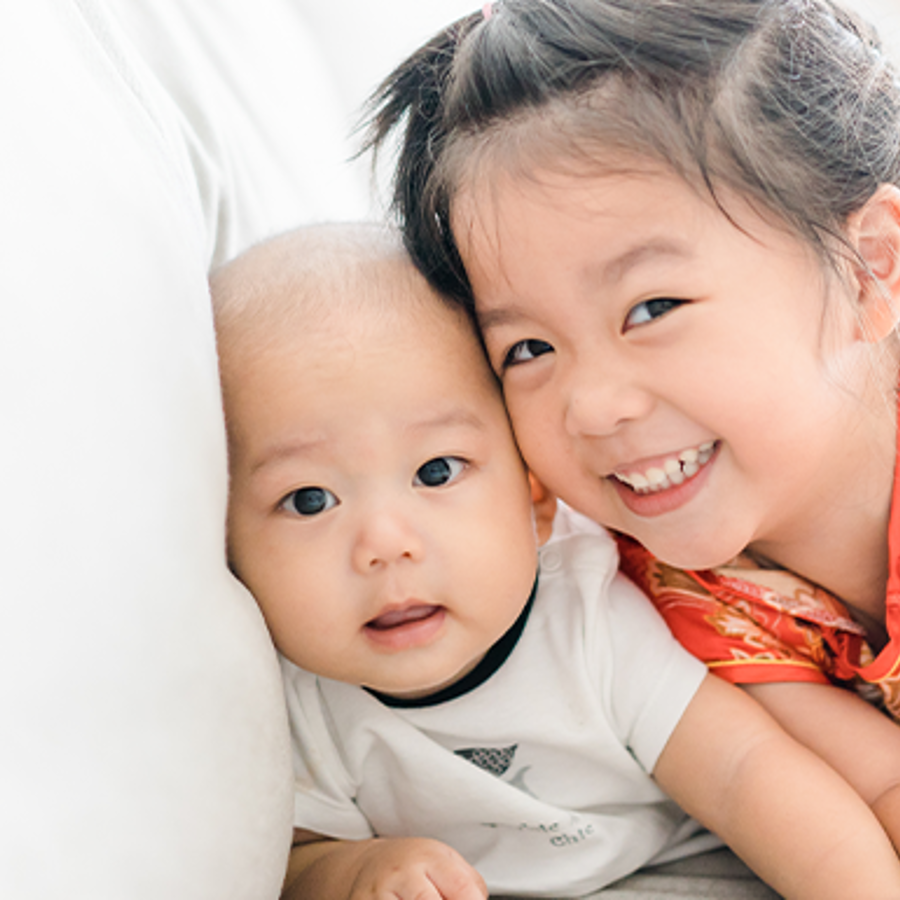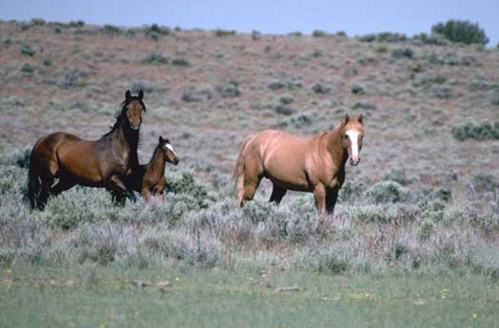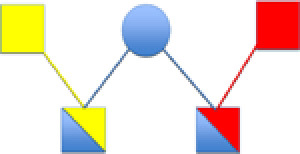
If two people share one parent but not the other, are they wholly related or half related?
May 27, 2011

- Related Topic:
- Relatedness
A curious adult from California asks:
“Genetically when you have two different mothers that bear children from the same father, does that make the children wholly related siblings or half related siblings? If the mother has her children by two different fathers, does that make the children half siblings or whole siblings?”
The short answer to your question is that both are half siblings. If you and someone else share a dad but not a mom, then you are half-siblings. And if the two of you share a mom but not a dad, same thing.
What makes two children full-siblings or half-siblings all boils down to how much genetic information, or DNA, they share. Each of us gets half our DNA from our mom and half from our dad.
Full siblings have the same mom and the same dad. So these siblings are getting all of their genetic information from the same two people.
Half siblings only share DNA from one parent. The genetic information from the other parent is different.
Since both parents give us an equal amount of our DNA, it doesn't matter if two kids share mom's or dad's genetic information. Either way, it's half.
Some people may get confused about this stuff because of horse breeding. In the horse breeding industry, the term "half-brother" or "half-sister" only describes horses with the same dam (mom) but different sires (dads). Those horses with the same sire (dad) but different dams (mom) are not called half-siblings. Instead horse breeders simply say that they are "by the same sire" with no sibling relationship implied.
Even though this is how they refer to these horses, they are genetically half siblings whether they share the same dam or sire. Just like with people.

People (and horses and every other living thing) use DNA as their basic unit of genetic information. It contains all of the instructions for making us. And since everyone looks a little different, we know that everyone has a unique set of DNA.
Each parent passes half their DNA to each of their children. So each egg has half of mom's DNA and each sperm has half of dad's DNA. When the egg and sperm come together, the half from mom and the half from dad make a whole baby.
So for full siblings, the egg and the sperm came from the same two people to make each of the siblings. That is why they are called full siblings, because they got all of their DNA from the same original pool of mom and dad's DNA.
For half-siblings, they only share one parent, whether it is their mom or their dad. So two siblings with the same mom have different halves from their dads and two siblings with the same dad have different halves from their moms. But either way, they are half-siblings.


Author: Kim Vande Wydeven
When this answer was published in 2011, Kim was a student in the Stanford MS Program in Human Genetics and Genetic Counseling. Kim wrote this answer while participating in the Stanford at The Tech program.
 Skip Navigation
Skip Navigation
